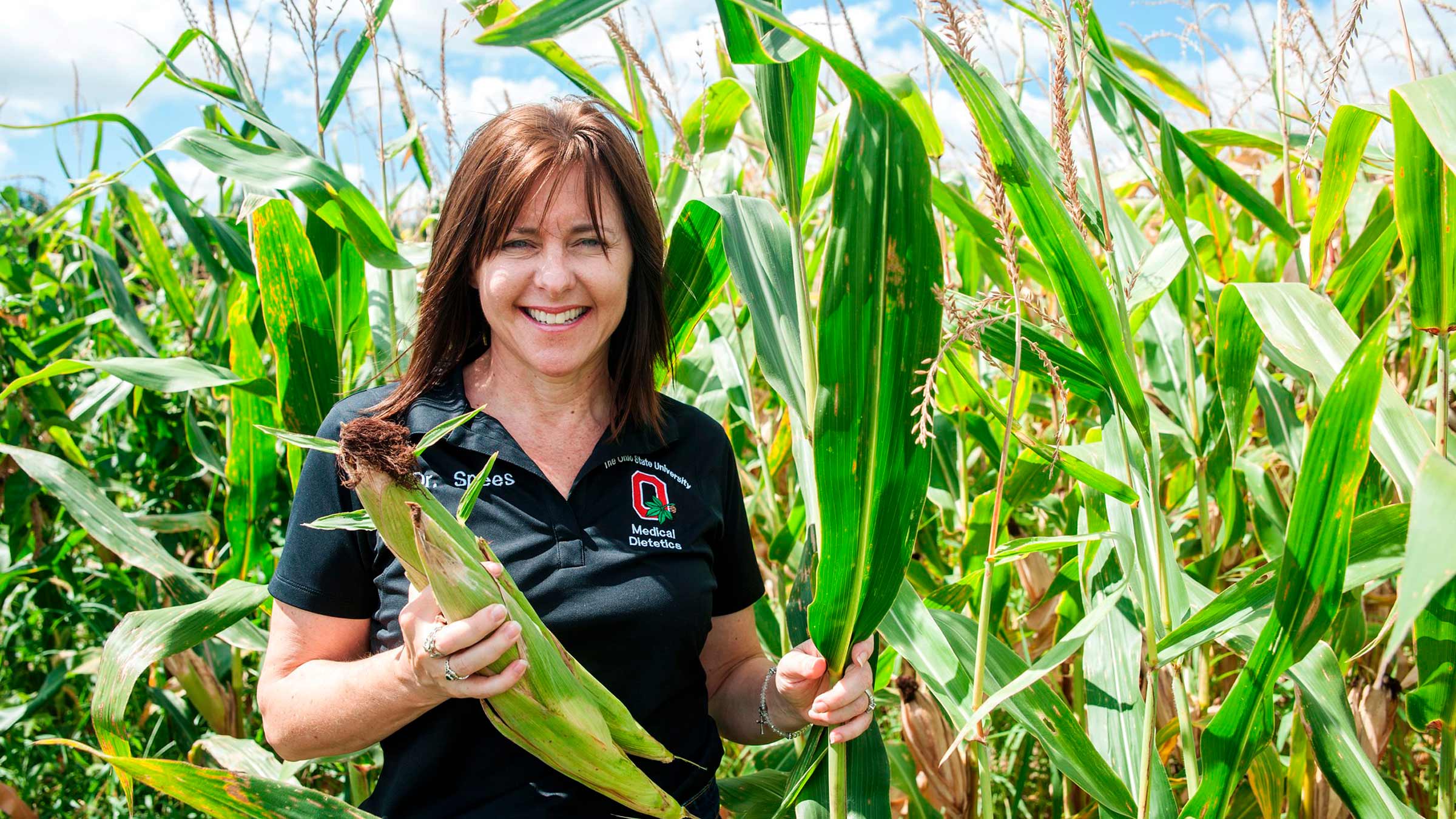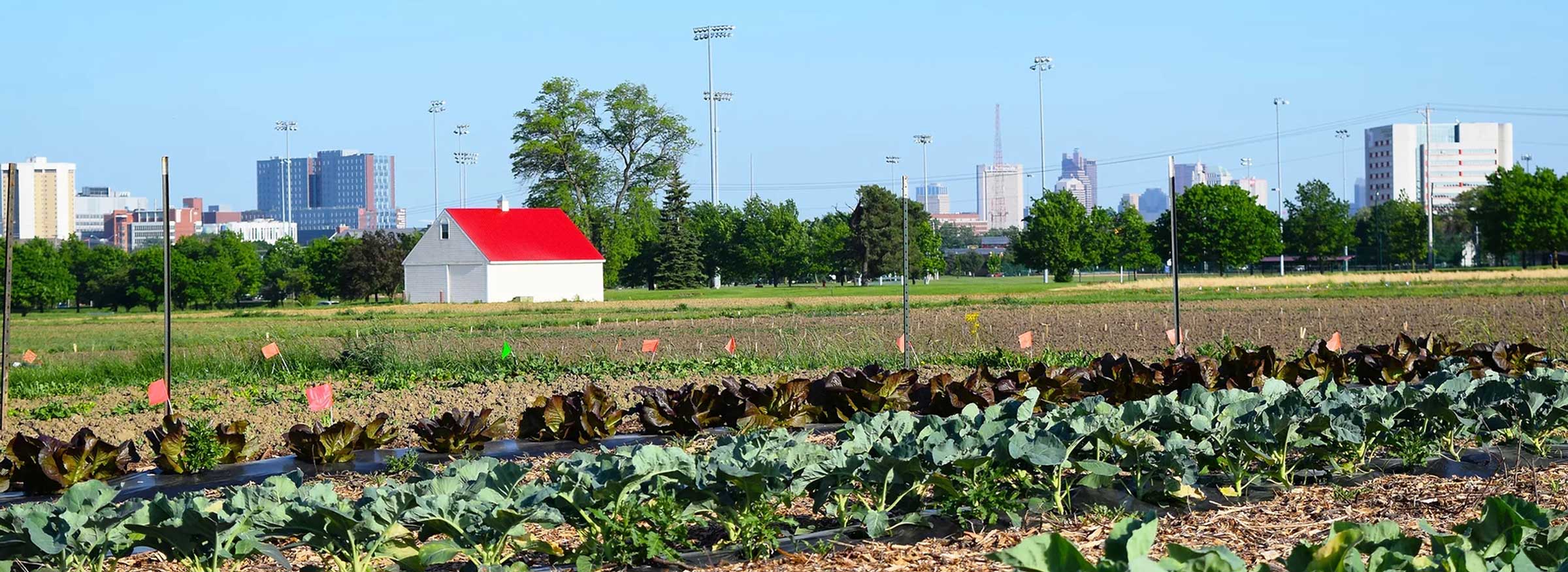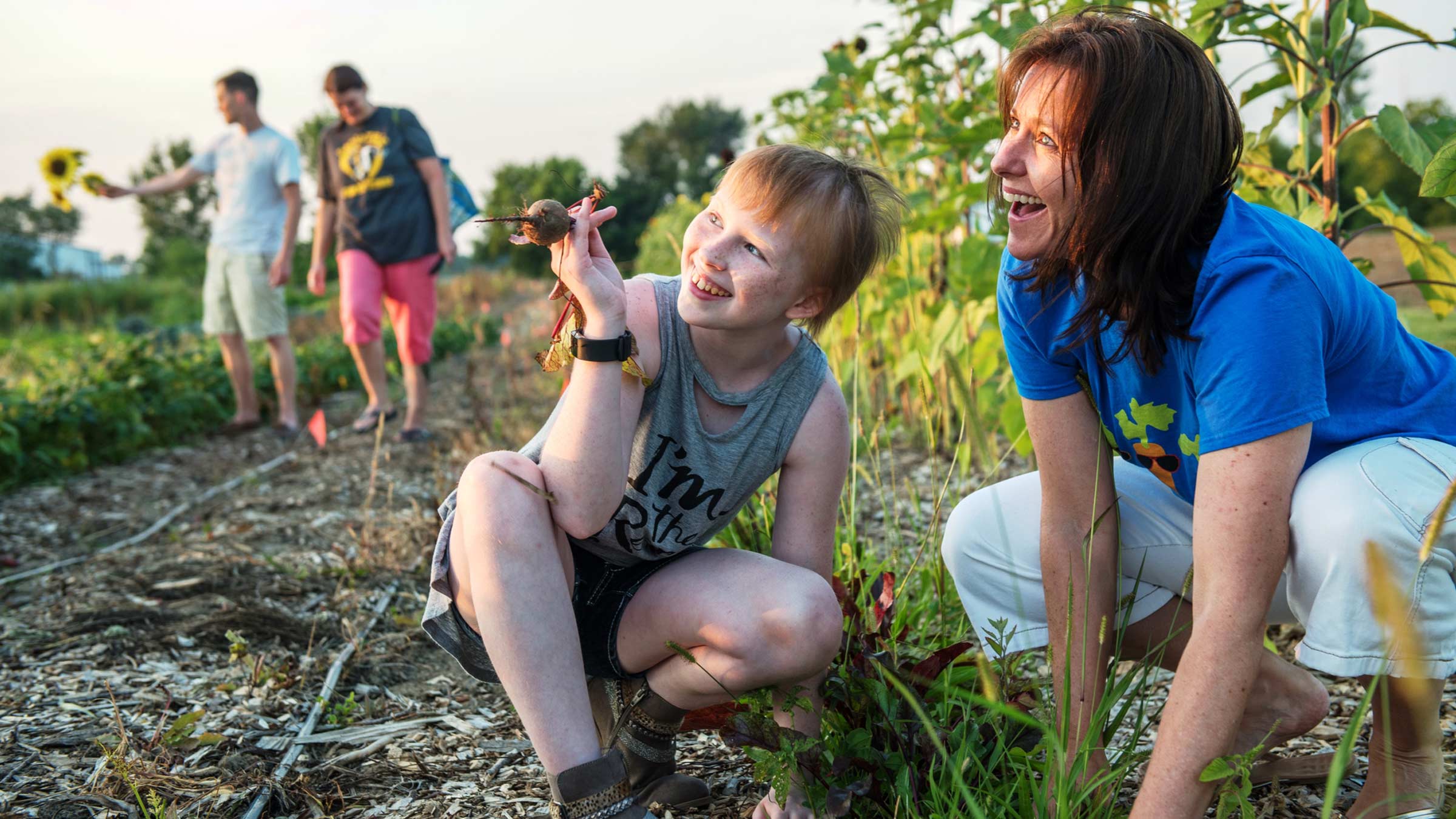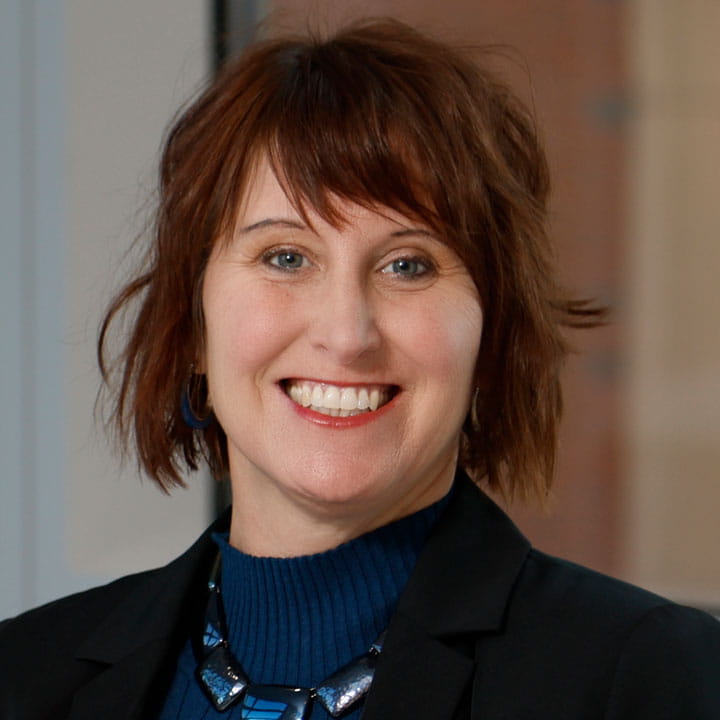
For Anne, a breast cancer survivor, the chance to participate in the Growing HOPE study, led by Colleen Spees, PhD, director of The Ohio State University HOPE Laboratory and member of the Molecular Carcinogenesis and Chemoprevention Program in The Ohio State University Comprehensive Cancer Center – Arthur G. James Cancer Hospital and Richard J. Solove Research Institute (OSUCCC – James), was beneficial in many ways. Dr. Spees’ studies provide lifestyle and nutrition interventions to patients with cancer who reside in low-resource communities.
In addition to the nutritious food Anne received, her life was enriched through the education and sense of community intrinsic to the program.
“Having cancer brings everyone to the same place, the same fight,” Anne says. “I believe that I have formed new lifelong habits that will help me for the rest of my days.”
Considering what is known about the existing barriers to equitable care when it comes to the prevention and treatment of cancer, efforts to level the playing field for patients diagnosed with cancer can go a long way in eliminating disparities in health outcomes.
While many of Dr. Spees’ colleagues who work in the burgeoning field of cancer control strive to remove barriers to cancer screening and treatment, Dr. Spees’ work focuses on how modifiable lifestyle behaviors, such as diet, impact cancer outcomes. The aim is to translate the evidence-based research into ways that can be embraced and integrated into daily life.
Dr. Spees does this through food and education. She combines her passions for nutrition, gardening, cooking and research to create behavioral interventions that have the ability to impact health, especially in vulnerable populations undergoing treatment for cancer.
The goal of her work is to change participants’ lifestyle behaviors to improve cancer outcomes and enhance their quality of life. These biobehavioral interventions have proven successful in empowering survivors of cancer in adhering to the evidence-based recommendations for cancer survivorship.

A living lab for research and the prevention of cancer
The produce grown through Dr. Spees’ living lab at The Ohio State University Waterman Agricultural and Natural Resources Laboratory is distributed to underserved people with a chronic disease, such as cancer. Many are undergoing treatment and participate in the lab’s randomized clinical trials. These clinical trials study the benefits of fiber-rich diets at the cellular level and on both mental and physical health. In addition, participants receive education on proper harvesting, safe food handling, storage and preparation of produce.
Dr. Spees explains that because certain nutrients and lifestyle behaviors can enhance or curtail cancer growth, or help prevent it in the first place, the use of precision nutrition is a promising approach to enhancing prevention and treatment options. Precision nutrition provides the hope of prescribing tailored medical nutrition therapy based on a person’s characteristics, such as genetics, race, sex, ethnicity, health history and lifestyle habits.
“Precision nutrition is like a medical prescription on a patient-by-patient basis that includes fully integrating nutritional recommendations into treatment and care,” Dr. Spees says.
“Everything we grow and distribute aligns with evidence-based dietary patterns.”
Phytochemicals in plant-based foods contain anticancer properties that over time can impact a person’s biology. Dr. Spees and her team of researchers want to understand how the biological mechanisms work so they can convert this knowledge into actionable steps, such as educating patients on specific dietary and lifestyle patterns and how those can fit into their lives.
This level of targeted research is the result of interdisciplinary collaborations with researchers from the OSUCCC – James and multiple colleges within the university and community partners.

The impact of healthy lifestyle behaviors on cancer prevention
Dr. Spees and her team are conducting a national study on vulnerable patients with lung cancer. In this trial, the intervention group receives medically tailored meals delivered directly to their homes plus remote nutrition counseling from a registered oncology dietitian. Early findings from their study, including mental and physical health outcomes, are very promising.
“The next step is to measure biomarkers of exposure and changes in the microbiome, which will provide clues to biologic mechanisms,” Dr. Spees says.
Human health is the byproduct of many factors spanning one’s life, including dietary patterns, physical activity, stress levels and sleep. Since only 10% of cancers are driven by genetic factors, DNA is not necessarily one’s destiny. Adopting a healthy lifestyle can empower participants to help manage their own health. Ensuring that all communities have access to nutritious food is the driver behind many health equity efforts.
Studies conducted through Dr. Spees’ lab provide healthy and free food provisions to underserved participants in need. Once patients learn how to integrate fresh and fiber-rich foods into their lifestyles, many become much more adventurous eaters.
Dr. Spees emphasizes that we need scientific proof establishing the evidence to support the integration of nutrition into the standard of care and management of cancers. She’s hopeful that key partnerships both within and outside the health care system will advocate for a necessary paradigm shift in policy and food access.
“It’s going to take a village to accomplish real change,” Dr. Spees says. “If we really want to impact human health and lessen chronic disease, we have to make sure healthier food choices are the less expensive and more accessible choice for everyone.”

Accurate, early cancer diagnosis matters
The James Cancer Diagnostic Center gives patients direct, expedited access to diagnostic testing and consultation with Ohio State cancer experts.
Schedule an appointment today




